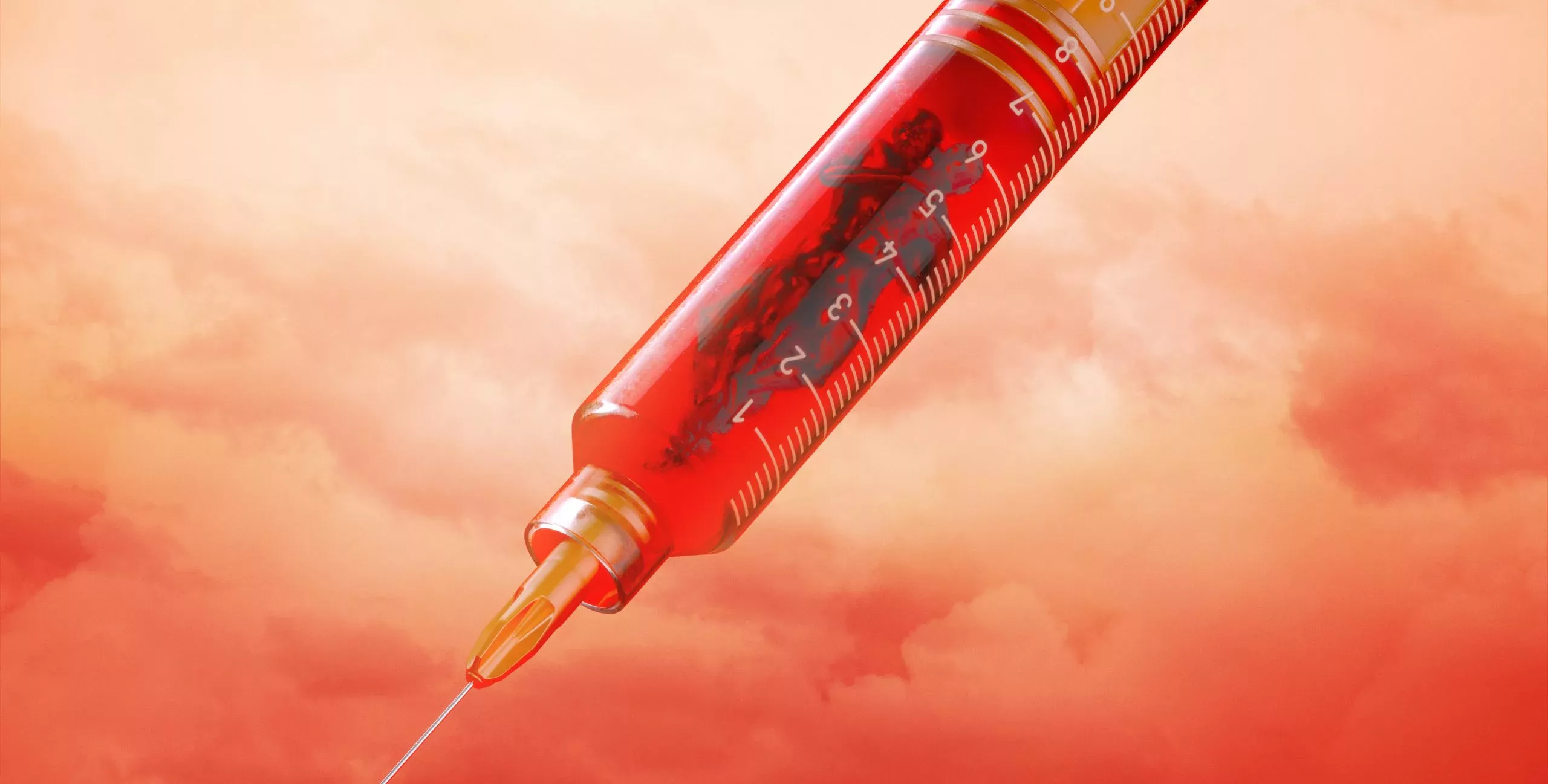Your cart is currently empty!

Donor Seeking Receiver
I was never disgusted by the sight of blood. To the contrary, blood has always fascinated me. When a nurse asks me if I’m afraid of needles, I say ✨n o✨ and watch the needle puncture my skin. Whenever I have the opportunity to see this precious liquid, I am fascinated by the concept that the infinite complexity of my being – all our beings – can really just be reduced to a big bag of meat and organs harmoniously working together to keep us alive.
And while it arouses in me a strange, albeit scientific, fascination, I am not attached to it beyond its life giving properties; I don’t need to see it, or taste it, or hoard it all to myself. So I couldn’t care less, really, to lose it. Provided I have enough to sustain me, I’d rather give what’s left to whomever wants or needs it. The good news, of course, is that it so happens that many people with health concerns do need it.
“Well, shut up already and go donate your blood!”, you say. The thing is that I’d love to, but I can’t.
I can’t because I’m a Canadian man who has sex with men (MSM). I can’t donate blood unless I abstain from sex with a man for three months, even if it’s with my life partner with whom I’ve been in a monogamous relationship for years. You see the irony here: I have the profile of the perfect blood donor, but I’m forbidden to be one. When your help is refused because of your sexual practices, it’s quite disturbing.
To fully understand this restriction’s complexity, which mainly has the effect of decreasing the pool of potential donors, we must first go back in time and take a look at its origins.
HIV in the GBT2Q+ community
From the 1970s to 1990s, HIV wreaked havoc all over the world, overwhelmingly affecting MSM in Western countries. This particular population was hardest hit, essentially because of anal sex.
While it’s incorrect to assume that all MSM have anal sex (or that other groups of people, including heterosexual couplings, don’t have anal sex), it’s nevertheless a common practice among that population. I mean, men’s “G-spot” (i.e. the prostate, or “P-spot”) is accessible through anal sex, which is a pretty good incentive. However, this practice can cause micro-lesions in the receptive partner (popularly called “bottom”), through which infected body fluids from the insertive partner (or “top”) can enter the body.
At a time when sexual health awareness wasn’t a priority, MSM suffered the damage of HIV and its associated stigma through an unfortunate combination of circumstances and riskier practices.
Donating blood in Canada
In light of this information and in the wake of the tainted blood scandal in the mid-1980s (the worst public health disaster in Canadian history ), the Canadian Red Cross introduced eligibility forms for blood donation. Under the pretext of preventing the transfusion of potentially HIV-contaminated blood, the new restrictive criteria effectively prevented MSM from donating blood.
Given the context at the time, the Red Cross’s policy of hyper-vigilance towards MSM could be seen as legitimate. I’d say it’s a bit like during COVID-19 times: you have to push hard to flatten the curve. But once the threat has subsided, it’s important to question the relevance of maintaining a discriminatory policy that was implemented in the midst of a crisis.
When these new eligibility criteria were implemented in 1992, they were absolute: a lifetime ban on donating blood for all men who have ever had sex with another man after 1977 (Canadian Blood Services, n.d.). This prohibition remained unchanged until 2013, after which it then became possible for MSM to donate blood – as long as they hadn’t had sex with a man in the past five years. Needless to say, I find that sixty months of sexual abstinence is a steep price, even for the most generous and altruistic souls of this world. Afterwards, the period of abstinence has gradually shortened until it reached the duration currently in effect in Canada: three months.
But here’s the (even more) confusing part: these days (as I write this, the year 2020), it is standard practice to test each blood donation, regardless of its donor, for a whole series of potential STBBIs: hepatitis B and C, syphilis, HIV, etc. No matter who you are – from twink to soccer mom – and what you declare on your form, your big bag of blood will go through extensive testing. Why, then, continue to impose an abstinence period specifically on MSM? There are so many of us who wish to donate our precious and life saving blood and platelets.
A look around the world tells us that eligibility criteria for donating blood varies from one country to another.
In some countries like Spain, Italy, and Brazil, there are no restrictions preventing MSM from donating blood. Conversely, in Denmark, France, and Portugal, the required period of abstinence is longer than that in effect in Canada, from four months to one year. The blood donation restrictions imposed on MSM are therefore relatively arbitrary. 🙅
Sexual practices versus sexual orientation
Several groups, organizations, and individuals are fighting to change the eligibility criteria for blood donation, and advocating to have the ban on MSM donating blood lifted. According to Guillaume Savard, founder of Queer For Change, which oversees the With Our Blood/Avec notre sang movement, the eligibility forms are discriminatory and contribute to perpetuating prejudice against GBT2Q+: “Not only must the federal government, Canadian Blood Services, and Héma-Québec revise the donor selection criteria, [but] they must also publicly acknowledge the reputational and psychological damage caused [by them] and the repercussions on the general public’s perceptions of these communities.” (free translation).

Movements such as All Blood is Equal or Queer For Change, advocate for a simple solution to this problem: on the eligibility form, shift the focus from partners’ sex to the degree of risk of sexual practices. Because in the end, it’s an individual’s specific behaviors regarding safer sex practices that puts them at risk (or not) of contracting an STBBI, and not that they happened to get laid by a same-sex partner.
So where do things stand now in 2020?
Internationally, the UK has announced plans to ease the ban on MSM donating blood for those who are in a monogamous relationship, starting in the summer of 2021. In Canada, nothing’s changed so far, but the debate is resurfacing thanks to committed activists like Justin Ling, who recently released Canadian Public Health documents describing the current restrictions as ineffective, unnecessary, and poorly targeted.
Canadian Blood Services mention on their website that there are currently 15 subsidized research projects conducted in partnership with Héma-Québec with the aim of examining and reviewing the selection process for MSM who wish to donate blood. Their findings could speed up the process involved in changing the current eligibility criteria.
Closer to home, this spring, we might hear our dear François Legault, like a modern version of Dracula, imploring us to go and have our life juice siphoned out of us to replenish Quebec’s blood reserves. With my strange fascination for our red fuel, it goes without saying that I would like to contribute. But alas, it is still forbidden for me despite the blatant need…
I sincerely believe that we can (and must) progress beyond the current limitations, and that, above all, we now need to work to repair the damage suffered by GBT2Q+ for more than 35 years. My blood is legitimate and I look forward to the day when my blood will be used for something other than my quarterly screening tests. 🤡
To sign the With Our Blood/Avec notre sang’s pledge and support the movement’s awareness campaign, click here.
Signed – An MSM who wants to help someone coagulate properly.
-
Blair, T.R. (2017). Safe Sex in the 1970s: Community Practitioners on the Eve of AIDS. American Journal of Public Health, 107(6), 872-879. https://doi.org/10.2105/AJPH.2017.303704
CATIE. (s.d.). A history of HIV/AIDS. https://www.catie.ca/en/world-aids-day/history
Centers for Disease Control and Prevention (CDC). (2001). HIV and AIDS — United States, 1981—2000. Morbidity and Mortality Weekly Report, 50(21), 430-434.
Challacombe, L. (2020). L’épidémiologie du VIH au Canada. CATIE. https://www.catie.ca/fr/feuillets-info/epidemiologie/epidemiologie-vih-canada
Coombes, R. (2007). Bad blood. The British Medical Journal, 334(7599), 879–880. https://doi.org/10.1136/bmj.39195.621528.59
Dangerfield, D.T., Smith, L.R., Williams, J., Unger, J. et Bluthenthal, R. (2017). Sexual Positioning among Men Who Have Sex with Men: A Narrative Review. Archives of Sexual Behavior, 46(4), 869–884. https://doi.org/10.1007/s10508-016-0738-y
Diamond, L. M. (2015). Sexuality and same-sex sexuality in relationships. Dans M. Mikulincer, P. R. Shaver, J. A. Simpson, & J. F. Dovidio (Dir), APA handbooks in psychology®. APA handbook of personality and social psychology, Vol. 3. Interpersonal relations (p. 523–553). American Psychological Association. https://doi.org/10.1037/14344-019
Diamond, L.M. (2016). Sexual Fluidity in Male and Females. Current Sexual Health Reports, 8, 249–256. https://doi.org/10.1007/s11930-016-0092-z
Glick, S.N., Morris, M., Foxman, B., Aral, S.O., Manhart, L.E., Holmes, K.K. et Golden, M.R. (2013). A comparison of sexual behavior patterns among men who have sex with men and heterosexual men and women. Journal of Acquired Immune Deficiency Syndromes, 60(1), 83-90. https://doi.org/10.1097/QAI.0b013e318247925e
Héma-Québec. (s.d.) Don de sang total. https://www.hema-quebec.qc.ca/sang/donneur-sang/types-de-don/don-de-sang-total/index.fr.html
Héma-Québec. (2020). Rapport annuel 2019-2020. https://www.hema-quebec.qc.ca/userfiles/file/RA-2019-2020/02/Hema-Quebec_Rapport-annuel_2019-2020.pdf
Heywood, W. et Smith, A.M.A. (2012). Anal sex practices in heterosexual and male homosexual populations: a review of population-based data. Sexual Health, 9(6), 517-526. https://doi.org/10.1071/SH12014
Korchmaros, J.D., Powell, C. et Stevens, S. (2013). Chasing Sexual Orientation: A Comparison of Commonly Used Single-Indicator Measures of Sexual Orientation. Journal of Homosexuality, 60(4). https://doi.org/10.1080/00918369.2013.760324
Levin, R.J. (2018). Prostate‐induced orgasms: A concise review illustrated with a highly relevant case study. Clinical Anatomy, 31(1), 81-85. https://doi.org/10.1002/ca.23006
Merck. (2005). Phobic Disorders. https://web.archive.org/web/20070509143421/http:/www.merck.com/mmpe/sec15/ch196/ch196e.html
Picard, A. (1998). The gift of death: Confronting Canada’s tainted-blood tragedy. HarperCollins Publishers.
Rootman, I., Pederson, A., Frohlich, K. et Dupéré, S. (2017). Health Promotion in Canada (4ème edition). Canadian Scholars Press.
Ryan, B. et Berthiaume, P. (2011, 24 octobre). Les hommes ayant des relations sexuelles avec d’autres hommes (HARSAH). INSPQ. https://www.inspq.qc.ca/es/node/2701
Smit, P.J., Brady, M., Carter, M., Fernandes, R., Lamore, L., Meulbroek, M., Ohayon, M., Platteau, T., Rehberg, P., Rockstroh, J.K. et Thompson, M. (2012). HIV-related stigma within communities of gay men: A literature review. AIDS Care, 24(3-4), 405-412. https://doi.org/10.1080/09540121.2011.613910
Société canadienne du sang. (s.d.). HARSAH – Document d’information. https://www.blood.ca/fr/notre-sujet/ressources-pour-les-medias/hommes-ayant-eu-un-rapport-sexuel-avec-un-0
Taraphdar, P., Guha, R.T., Haldar, D., Chatterjee, A., Dasgupta, A., Saha, B. et Mallik, S. (2011). Socioeconomic consequences of HIV/AIDS in the family system. Nigerian Medical Journal, 52(4), 250-253. https://doi.org/10.4103/0300-1652.93798
Vansintejan, J., Vandevoorde, J. et Devroey, D. (2013). The GAy MEn Sex StudieS: Anodyspareunia Among Belgian Gay Men. The Journal of Sexual Medicine, 1(2), 87-94. https://doi.org/10.1002/sm2.6
Zetola, N.M. et Pilcher C.D. (2007). Diagnosis and management of acute HIV infection. Infectious Disease Clinics of North America, 21(1), 19-48. https://doi.org/10.1016/j.idc.2007.01.008






